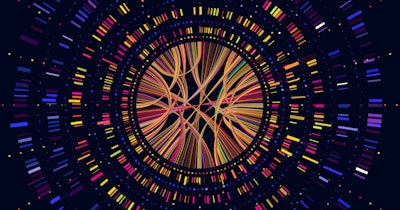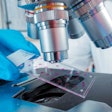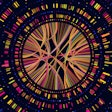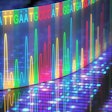
Curio Bioscience is offering researchers early access to a product which it claims is the first in the world to transform single-cell genomics data into spatial context.
The product, called Curio Trekker, commercializes an innovation known as Slide-tags, which was developed at the Broad Institute of the Massachusetts Institute of Technology (MIT) and Harvard University.
The Slide-tags method allows researchers to map the location of cells within tissues in standard single-cell experiments, which scientists hope will be transformative for research.
Palo Alto, CA-based Curio Bioscience has struck a licensing agreement with the Broad Institute and is commercializing the technology.
“By enabling researchers to routinely and easily capture the spatial context of cell populations, Curio is putting a very accessible and powerful new tool in the hands of researchers to advance discovery research in a way that is very exciting for cancer biology, neuroscience, developmental sciences and beyond,” said Christina Fan, PhD, co-founder and chief technology officer of Curio Bioscience.
The Slide-tags approach involves single nuclei within an intact tissue section being tagged with spatial barcode oligonucleotides derived from DNA-barcoded beads with known positions. The tagged nuclei can be used as an input into a wide variety of single-nucleus profiling assays. Scientists can determine the location of any nuclei based on the signal from multiple different beads.
The researchers say that applying Slide-tags at scale to patient samples can help in identifying which specific immune cells are interacting with which cancer cells and why.
The technology was developed at the labs of the academic co-founders of Curio Bioscience: Dr. Evan Macosko, PhD, a Broad Institute member at the Stanley Center for Psychiatric Research and an associate professor of psychiatry at Massachusetts General Hospital in Boston; and Fei Chen, PhD, a Broad core institute member and an assistant professor at Harvard University’s Department of Stem Cell and Regenerative Biology.
In a study published in Nature in December 2023, Macosko, Chen, and colleagues described how they used their technique to study cells within tissues including human brain, tonsils, and a melanoma tumor.
They reported that Slide-tags can be applied to a variety of human tissues and could serve as an invaluable tool to study tissue biology across organisms, age ranges, and diseases.
“Single-cell sequencing has been an incredibly impactful technology for profiling cell populations, but the research community has been eager to understand how cells of interest are organized spatially, so we set out to develop a method that delivers this,” said Dr. Evan Macosko.
“Curio Trekker is the culmination of this work and provides the spatial context that single-cell researchers are lacking today in a readily accessible format. Curio Bioscience has made it as easy to use as simply plugging it right into existing single cell-based workflows,” he added.
Curio Bioscience said it has been building toward full-scale commercialization this spring and is now taking pre-orders for the first commercial kits that are compatible with fresh frozen tissue sections.
The first stage of commercialization is an early access program that includes leading research organizations as participants.
Dr. Neil Henderson, PhD, chair of Tissue Repair and Regeneration and Wellcome Trust senior research fellow in Clinical Science at the University of Edinburgh, said, "We’re excited to trial the Curio Trekker spatial mapping kit. This one-hour protocol upstream of our standard single-nuclei RNA-sequencing assays should greatly facilitate our ability to interrogate the key cellular and molecular mechanisms regulating the human liver fibrotic niche."



















